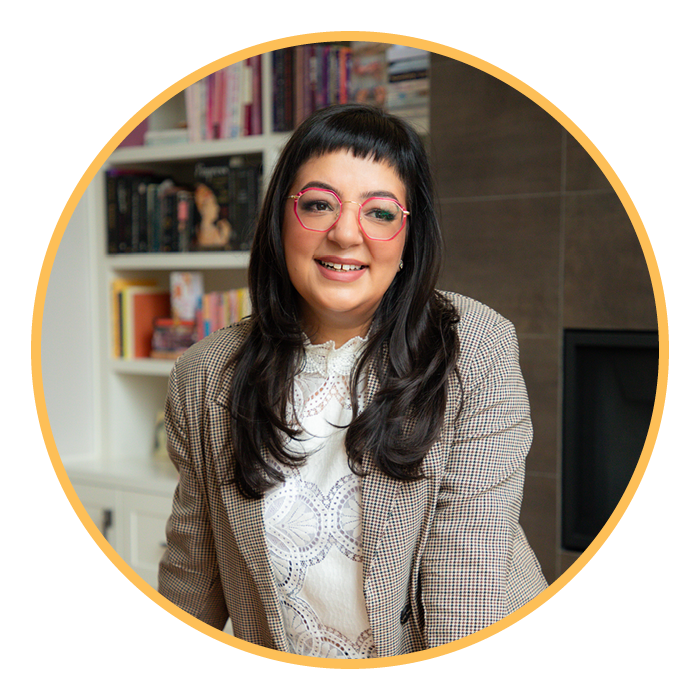As I reflect back on my first year in this inaugural role in the Faculty of Health Sciences (FHS), I can confidently say that equity efforts have never been more important. As our university community and the patients we serve continue to become increasingly diverse, as data consistently demonstrates the effects of racism and other types of discrimination on inequitable health care outcomes for marginalized populations, as we find ourselves in a society and world in which polarization threatens the ability to be in dialogue and nuance, we must be steadfast in our Faculty’s commitment to equity and anti-oppression.
I have spent much time over the past months, meeting with, presenting to and being in dialogue with leaders, staff, faculty and learners across FHS, engaging in numerous consultations on equity, diversity and inclusion (EDI) and anti-oppression as it pertains to curriculum, policy, teaching, dispute resolution and more. I have also presented on health equity and anti-discrimination beyond McMaster, including two keynote presentations at national conferences. These engagements will continue in 2024, including an invitation to participate in the plenary panel at the International Conference for Residency Education (ICRE) in the fall.

Saroo Sharda
Faculty of Health Sciences
Having the opportunity to present to and learn from, colleagues nationally and internationally has been enlightening. It has also underscored that we are leading the way in many of our equity related efforts at McMaster. While there is still a long road ahead for us to become a truly integrated Faculty with regards to equity and inclusion, it is important to take stock and be proud of what we have accomplished to date. An example is the recent presentation we gave to the Black Physicians Association of Ontario at their annual Dean’s breakfast, where the vast amount of work led by my colleagues in Undergraduate Medical Education (UGME) was nationally recognised for its innovation and creativity.
As I shared in my last message, the strategic priorities of FHS’ Office of Equity and Inclusion were delineated through a comprehensive and consultatory strategic planning process at the end of 2023. These have been presented to senior leadership as well as Equity, Diversity, Inclusion & Indigenous Reconciliation (EDIIR) leads across the Faculty and will be shared more widely in the coming months with the broader FHS community.
FHS faculty and staff recently received an update regarding the work of FHS’ Diversity and Climate Survey Task Force, co-chaired on behalf of the Dean by myself and my colleague Dr. Bernice Downey.
My Office co-hosted a number of successful events this past year, including The Women’s Symposium in partnership with our FHS Continuing Professional Development (CPD) Office, which drew participants from across Canada and beyond, as well as the Transgender Day of Remembrance event in collaboration with Postgraduate Medical Education (PGME). We also partnered with faculty members and McMaster staff on the Creating Brave Spaces (CBS) workshops, a live virtual simulation-based faculty development workshop on managing microaggressions in the health professions clinical teaching environment.
Along with the Office of Faculty Affairs we hosted an excellent Black History Month lecture, and we are now busy planning a collaboration with Rainbow Health Ontario (RHO) for Pride Month. I was honoured to be a guest on RHO’s new podcast, as well as the OrthoJoe podcast and the Gamechangers podcast hosted by our very own CPD office.
As the FHS Office of Equity and Inclusion continues to define itself and grow, I want to acknowledge that it has been a particularly challenging time for those working in the equity space. We have been called upon to hold with grace and courage issues that are deeply impactful, whilst also moving forward the gruelling work of structural change within our own departments and institutions. Given that almost all people engaged in equity and anti-oppression work are from equity deserving groups, we are also always grappling with our own experiences of marginalization. I have been buoyed and consistently moved by the empathy, skill and compassion of my EDIIR colleagues as we navigate ongoing challenges together.
The work of change and of shifting the status quo will inevitably be met with resistance, so let us continue to be courageous, support one another in community and be genuinely curious about those whose views may differ from our own. It is the ability to hold multiple, seemingly opposing truths, that will allow us to be in dialogue and move forward real change. I was reminded of this at a community event on March 21, the International Day for the Elimination of Racism, where I had the honour of hosting a Q&A with Dr. Ibram X. Kendi, author of the New York Times bestseller “How To Be An Antiracist.”
“Racist and antiracist are not fixed identities. We can be racist one minute and an antiracist the next. What we say about race, what we do about race, in each moment, determines what – not who – we are.” – Ibram X. Kendi
The work of health equity continues to be essential. It literally saves lives. Thank you to all of you who continue to contribute in big ways and small.
As always, please don’t hesitate to get in touch with us via email at fhsedi@mcmaster.ca.
Warmly,
Saroo Sharda
Associate Dean of Equity and Inclusion
Faculty of Health Sciences
April 2, 2024
